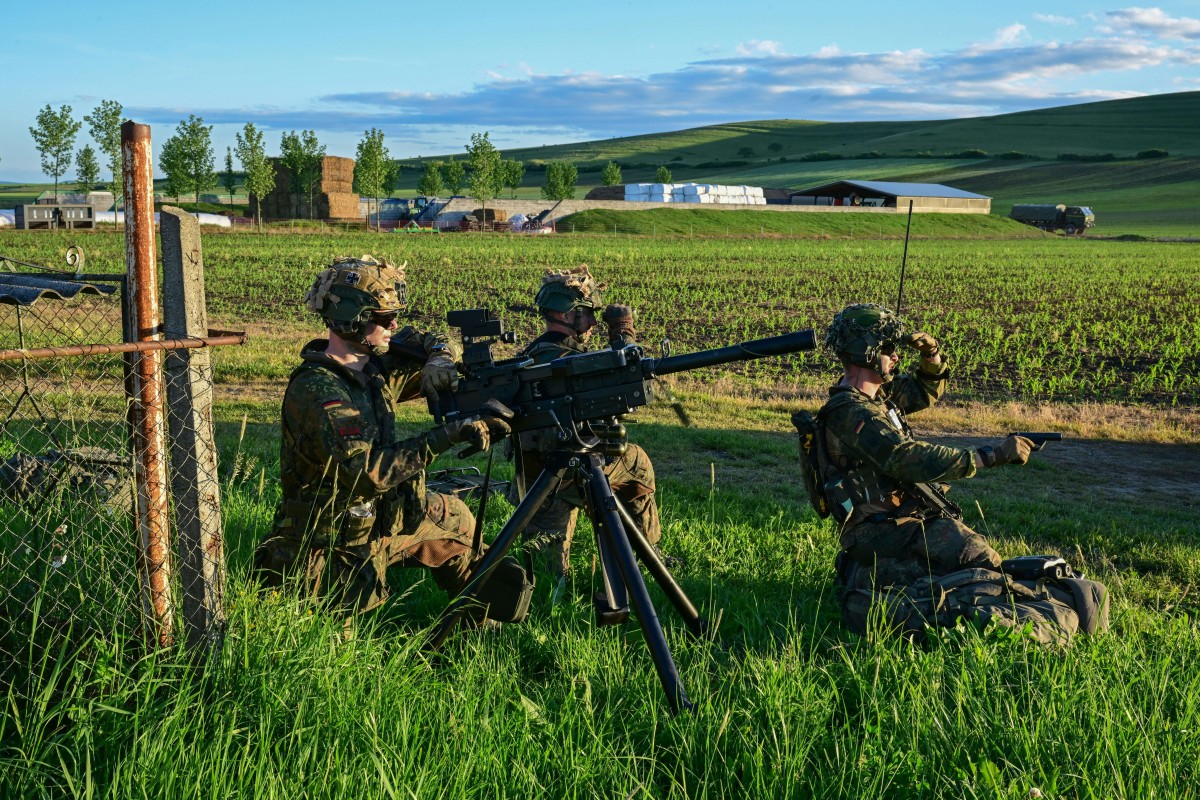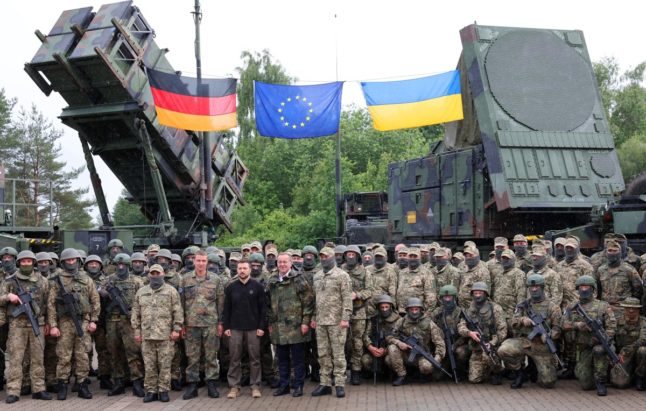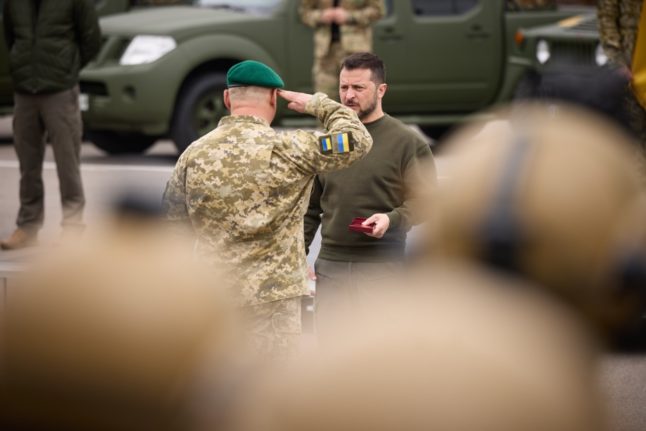According to media reports, Defence Minister Boris Pistorius (SPD) wants to compel young men in Germany to provide information about their willingness and ability to serve in the military via a questionnaire, and to submit them to a medical examination if selected.
The move would mark the first step in the reintroduction of mandatory military service in Germany after it was ended 13 years ago.
Here’s what we know about the plans so far.
What’s the plan for recruitment?
According to information obtained by DPA, the Pistorius plan requires an expansion of the conscription law for young men.
Military planners estimate that 400,000 people would have to fill out the questionnaire each year, and they estimate that a quarter of them could express interest in joining the Bundeswehr, or German military.
From this pool, 40,000 candidates would then be selected who could be drafted into the military.
Currently, however, there is only capacity for training 5,000 to 7,000 recruits, which means training capabilities would have to be expanded. The term of service is expected to last six to twelve months.
Pistorius was scheduled to inform the Bundestag’s defence committee about his plans on Wednesday morning and present them in a press conference at midday.
Cabinet ministers say soldiers must be volunteers
On Tuesday, Pistorius visited a military training area with Ukrainian President Volodymyr Zelensky. The site in north-eastern Germany is used to train Ukrainian soldiers on the ‘Patriot’ air defence missile system.
Since the outbreak of Russia’s invasion of Ukraine, Germany has pushed to get its army ready for defence in case war should escalate further. But Pistorius has had a hard time securing both funding and the number of troops that would be required to do so.
READ ALSO: ‘I could die’ – German military struggles to recruit

The idea to reintroduce compulsory military service has previously been proposed, but has largely been rejected by the current leadership.
SPD leader Lars Klingbeil, for example, has spoken out in favour of continuing to rely on voluntary recruitment. “I think we should try it voluntarily by making the Bundeswehr even more attractive,” he said.
At the start of the year, Green Party chairman Omid Nouripour made a similar point: “I don’t think conscription is needed.” There has also been resistance to compulsory service from the FDP.
According to the Pistorius model, both the questionnaire and potential conscription would become mandatory for young men.
After 55 years of compulsory service, conscription was suspended Germany in 2011 by Defence Minister Karl-Theodor zu Guttenberg (CSU). Practically all structures for conscription were then dissolved.
However, the Compulsory Military Service Act stipulates that compulsory military service for men can be revived if the Bundestag determines a state of tension that could lead to military conflict. But there haven’t been any concrete preparations for this since 2011.
How to get Germany ‘fit for war’
Pistorius had models of compulsory service examined after the Bundeswehr shrank to 181,500 soldiers last year. The chairman of the Bundeswehr Association, told DPA that the number of personnel in the Bundeswehr fell to its lowest level since 2018 this month.
Pistorius is convinced that the army can not be revived with volunteers alone: “I am firmly convinced that it will not work without mandatory components.”
He repeatedly stressed that Germany must become “fit for war” in order to be able to credibly support its NATO allies in deterrence.
The debate about military service touches on issues of constitutionality. The Federal Agency for Civic Education writes that since the founding of the Bundeswehr, there have always been more men fit for military service than needed for the army, which has been perceived as unfair.
The state also has mandatory service in other areas, such as for lay judges (jurors) and for fire protection. A broader new service obligation, including rescue services and disaster control, has also been publicly discussed.
READ ALSO: Berlin allows Ukraine to fire German weapons at targets in Russia
As the law stands, young women would be spared from a draft. The Basic Law would have to be amended for women to be conscripted.
The chairman of the Bundeswehr Association, Colonel André Wüstner, had called for a new military service plan before Pistorius’ plans were announced.
He suggested that anyone who understands the gravity of the current Zeitenwende (historical turning point), in terms of defence policy, “will not be able to oppose a new form of military service or a new type of conscription across the board”.



 Please whitelist us to continue reading.
Please whitelist us to continue reading.
Member comments